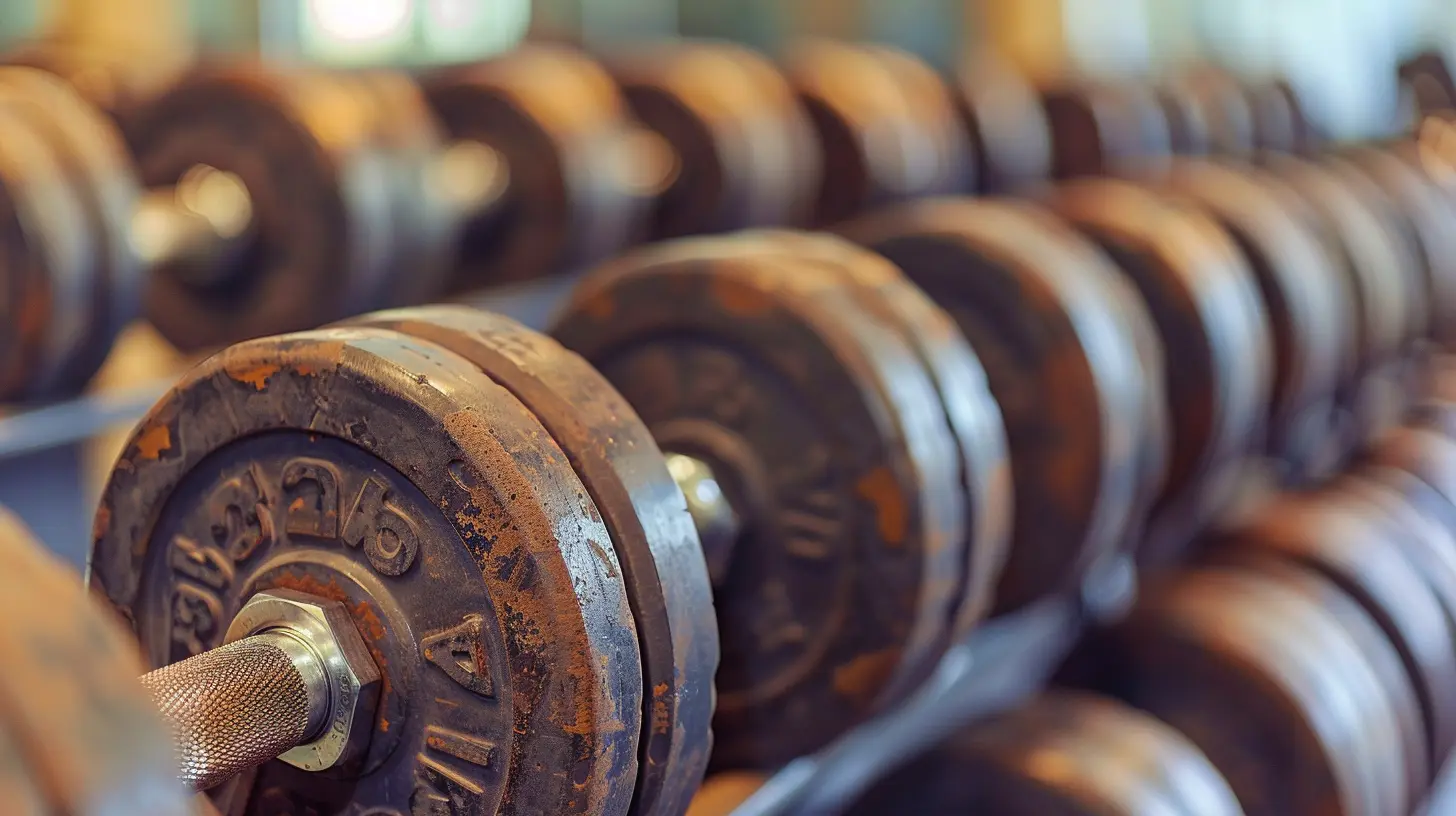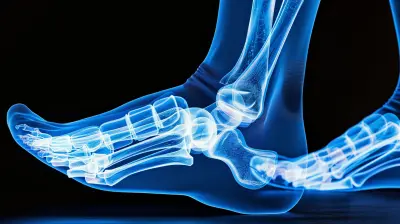The Importance of Rest Days in Your Fitness Routine
23 November 2024
When you’re on a fitness journey, it’s easy to get caught up in the “go hard or go home” mentality. You feel the momentum, the adrenaline, and the drive to push your body to its limits. But what if I told you that taking time off — yes, actually resting — is just as important as those sweat-drenched workouts? It’s tempting to think that more is better, but when it comes to fitness, overdoing it can backfire. Let’s dive into why rest days are crucial for your overall success, and how they can help you reach your fitness goals more efficiently.

What Are Rest Days?
Before we get into the why, let’s talk about the what. A rest day is simply a day when you take a break from your usual exercise or training routine to allow your body to recover. Rest days don’t necessarily mean lounging on the couch all day (although that can be part of it); sometimes they involve light activity like walking, stretching, or yoga. The key is that you’re giving your body a chance to recharge, repair, and come back stronger.
Why Are Rest Days So Important?
1. Muscle Recovery and Growth
When you work out, especially during strength training, you’re actually creating tiny tears in your muscle fibers. Sounds a bit scary, right? But don’t worry, this is a normal part of the process. Your body repairs these micro-tears during rest, and that’s when your muscles grow stronger. Without proper rest, your muscles don’t have the time they need to rebuild, which can lead to overuse injuries, soreness, and even a plateau in progress.Think of your muscles like a rubber band. If you stretch it too often without letting it return to its original shape, it’s eventually going to snap. Similarly, your muscles need time to recover from intense workouts so they can come back even stronger.
2. Prevents Overtraining and Injuries
Have you ever felt utterly exhausted and wondered if your body is begging for a break? That’s overtraining knocking on your door. When you don’t allow your body to rest, you can push yourself into a state of overtraining, which can lead to burnout, chronic fatigue, and an increased risk of injuries. Symptoms of overtraining include persistent muscle soreness, irritability, decreased performance, and even trouble sleeping.It’s like driving a car non-stop without ever stopping for gas or a tune-up. Eventually, something is going to break down. Rest days are your body’s version of refueling and getting that much-needed maintenance.
3. Central Nervous System Recovery
It’s not just your muscles that need a break. Your central nervous system (CNS) takes a hit too during intense training sessions. While your muscles might feel fine, your CNS can become fatigued, leading to slower reaction times, decreased motivation, and poor mental focus. Rest days give your CNS a chance to recover, helping you stay sharp both mentally and physically.4. Improves Performance
You’d think that consistently working out would lead to better performance, but here’s the kicker: Rest days are what actually help you improve. When you allow your body to recover, you come back stronger, faster, and more efficient. You’ll notice that after a well-deserved break, you can lift heavier, run faster, and perform better overall.Imagine trying to run a marathon without ever taking a break. You’d probably burn out halfway through, right? Well, it’s the same with your fitness routine. Incorporating rest days ensures that you’re building up your stamina and strength over time, rather than burning out early.
5. Mental Health Benefits
Let’s not forget the mental side of things. Working out is a great stress reliever, but constantly pushing yourself can have the opposite effect. You might start to feel overwhelmed, anxious, or even resentful of your workout routine. Taking a day off allows you to mentally reset. It gives you time to enjoy other activities, spend time with friends and family, or simply do something fun.Burnout isn’t just physical; it’s mental too. Rest days help keep your mind fresh, motivated, and excited about your fitness goals.

How Often Should You Take Rest Days?
This is the million-dollar question, and the answer depends on several factors, including your fitness level, goals, and the intensity of your workouts. Generally speaking, most experts recommend taking at least one to two rest days per week. But if you’re engaging in high-intensity training or heavy lifting, you might need more.Listen to your body. If you’re feeling fatigued, sore, or mentally drained, it’s a sign that you probably need a rest. On the flip side, if you feel energized and ready to go, you might be able to push through another workout. The key is finding a balance that works for you and your body.

Active Rest Days vs. Complete Rest Days
Not all rest days are created equal. There are two main types of rest days: active rest and complete rest. Here’s a breakdown of each:Active Rest Days
On active rest days, you’re still moving, but the intensity is much lower than your usual workouts. Think of activities like walking, swimming, yoga, or light cycling. These activities promote blood flow, which can actually help speed up recovery by delivering nutrients to your muscles and removing waste products like lactic acid.Active rest days are perfect if you want to stay in the groove without putting too much strain on your body. It’s like idling your car instead of turning it off completely — you’re still “on,” but at a much lower pace.
Complete Rest Days
Complete rest days are exactly what they sound like — no structured physical activity. These are the days when you can fully relax, take a nap, binge-watch your favorite show, or simply kick back and focus on recovery. Complete rest days are crucial when you’ve had particularly intense training sessions or if you’re feeling mentally and physically worn out.While too many complete rest days can make it harder to get back into the swing of things, the occasional full day off can do wonders for your recovery and mental health.
Signs You Need a Rest Day
Not sure if you need a rest day? Here are some telltale signs that your body is asking for a break:- Persistent muscle soreness that doesn’t go away
- Lack of motivation to work out
- Decreased performance or strength
- Irritability or mood swings
- Difficulty sleeping or feeling fatigued despite adequate sleep
- Increased heart rate during rest
- Chronic aches and pains
If you’re experiencing any of these symptoms, it’s time to take a step back and let your body recover. Remember, rest is part of the process, not a sign of weakness.
The Role of Sleep in Recovery
Speaking of rest, let’s talk about one of the most underrated aspects of recovery — sleep. You can take all the rest days in the world, but if you’re not getting enough sleep, your body won’t be able to recover properly. During sleep, your body repairs tissues, replenishes energy stores, and releases growth hormones that aid in muscle recovery and growth.So, if you’re serious about fitness, make sleep a priority. Aim for 7-9 hours of quality sleep per night to ensure your body is fully recovered and ready to tackle your next workout.
How to Make the Most of Your Rest Days
Rest days don’t mean you have to do nothing (unless your body needs it). Here are some ways to make the most out of your recovery days:- Stretching: Gentle stretching can help improve flexibility and prevent stiffness.
- Hydration: Drink plenty of water to stay hydrated and support muscle recovery.
- Nutrition: Fuel your body with nutritious foods, especially those rich in protein and healthy fats, to aid muscle repair.
- Foam Rolling: Foam rolling helps release muscle tension and improve blood flow.
- Mindfulness: Use your rest days to practice mindfulness or meditation, which can improve mental clarity and reduce stress.
The Bottom Line
Rest days are not just a luxury; they’re a necessity. They allow your body to recover, rebuild, and come back stronger. Without adequate rest, you risk overtraining, injury, and mental burnout — all of which can derail your progress. So, the next time you’re tempted to skip a rest day, remember that taking a break isn’t a sign of weakness; it’s a crucial part of the process. After all, your body is like a finely tuned machine, and even the best machines need time to recharge.So, go ahead — take that rest day. Your body (and mind) will thank you for it.
all images in this post were generated using AI tools
Category:
FitnessAuthor:

Umberto Flores
Discussion
rate this article
21 comments
Dylan Wilkins
This article beautifully captures the critical role rest days play in a balanced fitness routine. It's essential for muscle recovery and preventing burnout. Incorporating proper rest not only enhances performance but also supports mental well-being. Great reminders for anyone looking to optimize their workouts and maintain long-term health!
February 21, 2025 at 12:57 PM

Umberto Flores
Thank you! I'm glad you found the article helpful. Rest days truly are vital for both physical and mental recovery.
Sara Pacheco
Rest fuels strength; recharge to excel!
February 6, 2025 at 9:12 PM

Umberto Flores
Thank you! Absolutely, rest is essential for recovery and peak performance.
Kristen Lawson
Rest days: the unsung heroes of fitness! 🛌 Who knew lounging around could be part of the workout plan? Embrace the couch, binge-watch your favorite shows, and let those muscles recharge. After all, even superheroes need a day off from saving the world (or just lifting weights)! 🙌✨
February 2, 2025 at 1:18 PM

Umberto Flores
Absolutely! Rest days are crucial for recovery and muscle growth. Embracing downtime is just as important as the workouts themselves—your body will thank you! 🌟
Sablethorn Franco
Rest days: the silent architects of strength, hiding secrets that transform fleeting moments into enduring power. What mysteries lie in your routine?
January 31, 2025 at 5:40 AM

Umberto Flores
Absolutely! Rest days are essential for recovery and muscle growth, revealing the strength that comes from balance in our routines.
Kyle McGovern
Rest days are often overlooked, yet they hold secrets to unlocking peak performance. In the silence of recovery, muscles whisper their needs, and strength secretly restores. What hidden potential lies in the moments of stillness? Embrace these pauses; they may just be the key to your next breakthrough.
January 25, 2025 at 12:04 PM

Umberto Flores
Absolutely! Rest days are crucial for recovery and muscle growth, allowing us to return stronger and more focused. Embracing these moments of stillness can lead to significant breakthroughs in our fitness journey.
Carla Cantu
Rest days: the unsung heroes of fitness. It’s like letting your muscles binge-watch their favorite series while you’re out doing... well, anything but squats! Remember, even elite athletes need their beauty sleep—gotta look good when flexing in front of the mirror, right? So embrace the couch; it’s part of the plan!
January 20, 2025 at 12:20 PM

Umberto Flores
Absolutely! Rest days are crucial for recovery and muscle growth, helping you come back stronger and more energized. Embrace them as essential to your fitness journey!
Leslie Velez
Great article! I appreciate the emphasis on rest days. It's often overlooked, but allowing our bodies to recover is crucial for long-term success and preventing injury. Balancing hard work with proper rest truly makes a difference in any fitness journey.
January 17, 2025 at 9:43 PM

Umberto Flores
Thank you for your thoughtful comment! I'm glad you found the article helpful—rest days are indeed essential for recovery and long-term success in fitness.
Payton McHugh
Rest days: mandatory naps for gains!
January 13, 2025 at 3:54 AM

Umberto Flores
Absolutely! Rest days are crucial for recovery and muscle growth—nap your way to progress!
Romina Simmons
Great article! Rest days are indeed crucial for recovery and performance. They not only prevent injuries but also enhance muscle growth and mental well-being. Incorporating them into your routine can truly optimize your fitness journey. Keep up the good work!
January 9, 2025 at 2:01 PM

Umberto Flores
Thank you for your thoughtful comment! I’m glad you found the article helpful. Rest days are indeed essential for overall progress!
Nathaniel Kirk
Rest days are essential for recovery and performance. They prevent burnout, reduce injury risk, and help maximize gains, ensuring you stay motivated and achieve your fitness goals.
January 6, 2025 at 8:39 PM

Umberto Flores
Absolutely! Rest days are crucial for recovery, injury prevention, and maintaining motivation. They play a key role in maximizing your fitness gains.
Avianna McMillen
Rest days are crucial for recovery and overall performance. They prevent injuries, enhance muscle growth, and improve mental well-being. Incorporating them into your fitness routine is essential for long-term success and sustainable progress.
January 1, 2025 at 7:20 PM

Umberto Flores
Absolutely! Rest days are vital for recovery, injury prevention, and sustainable progress in any fitness regimen. Prioritizing them is key to achieving long-term success!
Hattie Warren
Rest days are crucial; they prevent burnout and enhance overall performance and recovery.
December 29, 2024 at 8:00 PM

Umberto Flores
Absolutely! Rest days are essential for preventing burnout and maximizing performance, allowing your body to recover and grow stronger.
Elizabeth Coleman
Rest days: the hidden allies in your fitness journey. While sweat and effort steal the spotlight, silence whispers secrets of recovery. Embrace the pause—it's where strength is truly forged and potential awakens.
December 25, 2024 at 5:09 AM

Umberto Flores
Absolutely! Rest days are essential for recovery and strength-building. They allow our bodies to repair and adapt, ultimately enhancing performance and preventing burnout. Embrace the pause!
Solara Dillon
Absolutely! Rest days are like the secret ingredient in our fitness recipe. They let our bodies recharge and make us stronger. Skipping them is like trying to bake without flour—sure, you could, but it won’t turn out right!
December 19, 2024 at 4:49 AM

Umberto Flores
Absolutely! Rest days are essential for recovery and strength. Thanks for the great analogy!
Jackson Hall
Great insight! Rest days are crucial for recovery and long-term progress. Keep shining!
December 17, 2024 at 6:00 AM

Umberto Flores
Thank you! I completely agree—rest days are vital for recovery and achieving lasting results.
Alanna McKeever
Great article! I often forget the value of rest days. They truly make a difference in progress!
December 12, 2024 at 12:13 PM

Umberto Flores
Thank you! I'm glad you found it helpful. Rest days are crucial for maximizing progress and recovery!
Felicity Becker
Great article! Rest days are crucial for recovery and performance. Remember, even champions need a break to recharge and improve!
December 1, 2024 at 1:32 PM

Umberto Flores
Thank you! Absolutely, rest days are vital for recovery and reaching our fitness goals. Glad you enjoyed the article!
Grace McGee
Great article! Rest days are vital for recovery and performance, allowing muscles to repair and preventing burnout. Incorporating them strategically into your routine can enhance overall progress and fitness levels. Remember, rest is just as important as the workouts themselves for achieving long-term goals!
November 28, 2024 at 5:57 AM

Umberto Flores
Thank you! I'm glad you found the article useful. Rest days truly are essential for optimal recovery and performance!
Fable Oliver
Great article! It’s essential to emphasize the significance of rest days in any fitness regimen. They not only aid in muscle recovery but also prevent burnout, ultimately leading to better performance. Thank you for shedding light on this crucial aspect of fitness that often gets overlooked!
November 26, 2024 at 3:41 AM

Umberto Flores
Thank you for your insightful comment! I'm glad you found the article helpful in highlighting the importance of rest days for recovery and performance.
Sandra McGill
Rest days are like the pause button on your favorite playlist—necessary to avoid burnout and ensure the next tracks are just as epic! So, embrace those lazy days; your muscles will thank you, and your couch might just throw a party in your honor!
November 24, 2024 at 4:44 AM

Umberto Flores
Absolutely! Rest days are essential for recovery and performance, making them a vital part of any fitness routine. Embrace them!
Denise McDermott
Rest days aren't just a break; they're the unsung heroes of progress! While sweat and hustle dominate the spotlight, it’s the recovery that builds strength. Skip them at your own peril—your muscles won't grow if they don’t get a chance to breathe!
November 23, 2024 at 5:31 AM

Umberto Flores
Absolutely! Rest days are crucial for recovery and muscle growth. Embracing them can enhance overall performance and lead to better long-term results.
MORE POSTS

How the Shift is Changing Offensive Strategy in Baseball

Injury Prevention for Runners: Tips for Staying on the Road

How to Reduce Muscle Cramps with Proper Nutrition
Tennis Fashion: A Look at Iconic Outfits Over the Decades

Stadium Safety: How Modern Arenas Keep Fans Secure

How Club Teams Balance Tradition with Innovation

The Role of Analytics in Modern Tennis Strategy

Baseball’s Most Underrated Players: Hidden Gems of the MLB

Why Consistency is Key to Long-Term Fitness Success

Cricket’s Greatest Rivalry: India vs. Pakistan Showdowns

The Role of Leadership in Hockey: What Makes a Great Captain?

Boxing and Cross-Training: How Other Sports Can Improve Your Game

Improving Your Focus Through Pre-Shot Routines